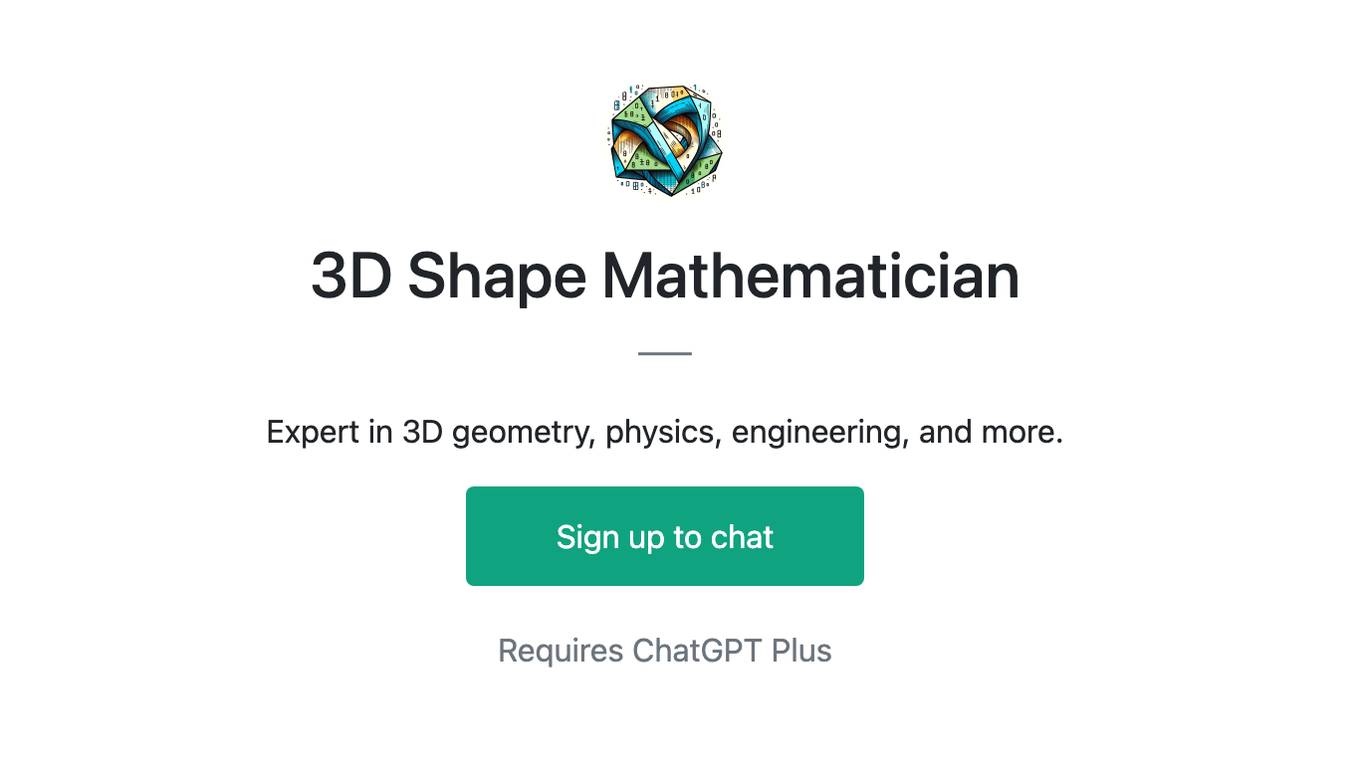Best AI tools for< Trajectory Prediction >
8 - AI tool Sites
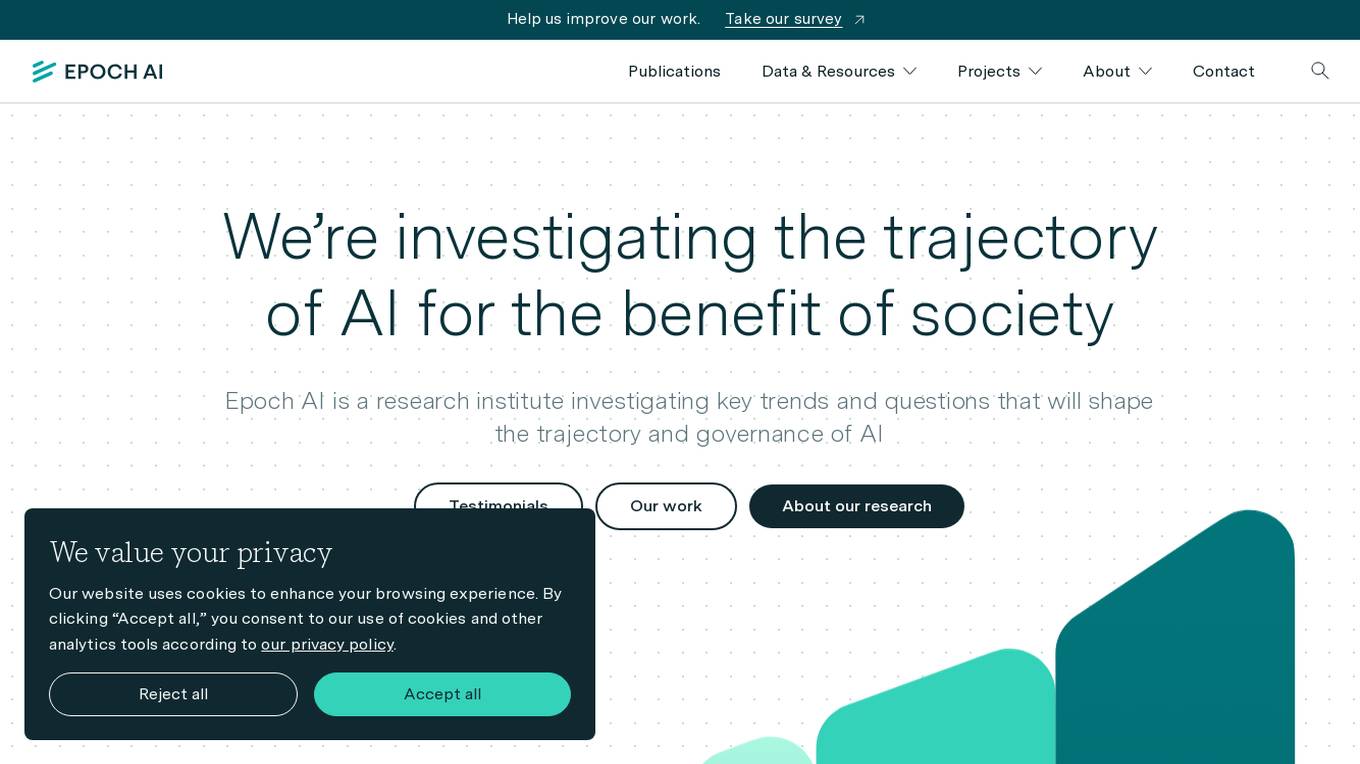
Epoch AI
Epoch AI is a research institute focused on investigating key trends and questions that shape the trajectory and governance of artificial intelligence. They provide essential insights for understanding the fast-moving field of AI and machine learning through rigorous analysis and empirical trends. The institute collaborates with stakeholders and produces reports, papers, models, and visualizations to advance evidence-based discussions about AI.
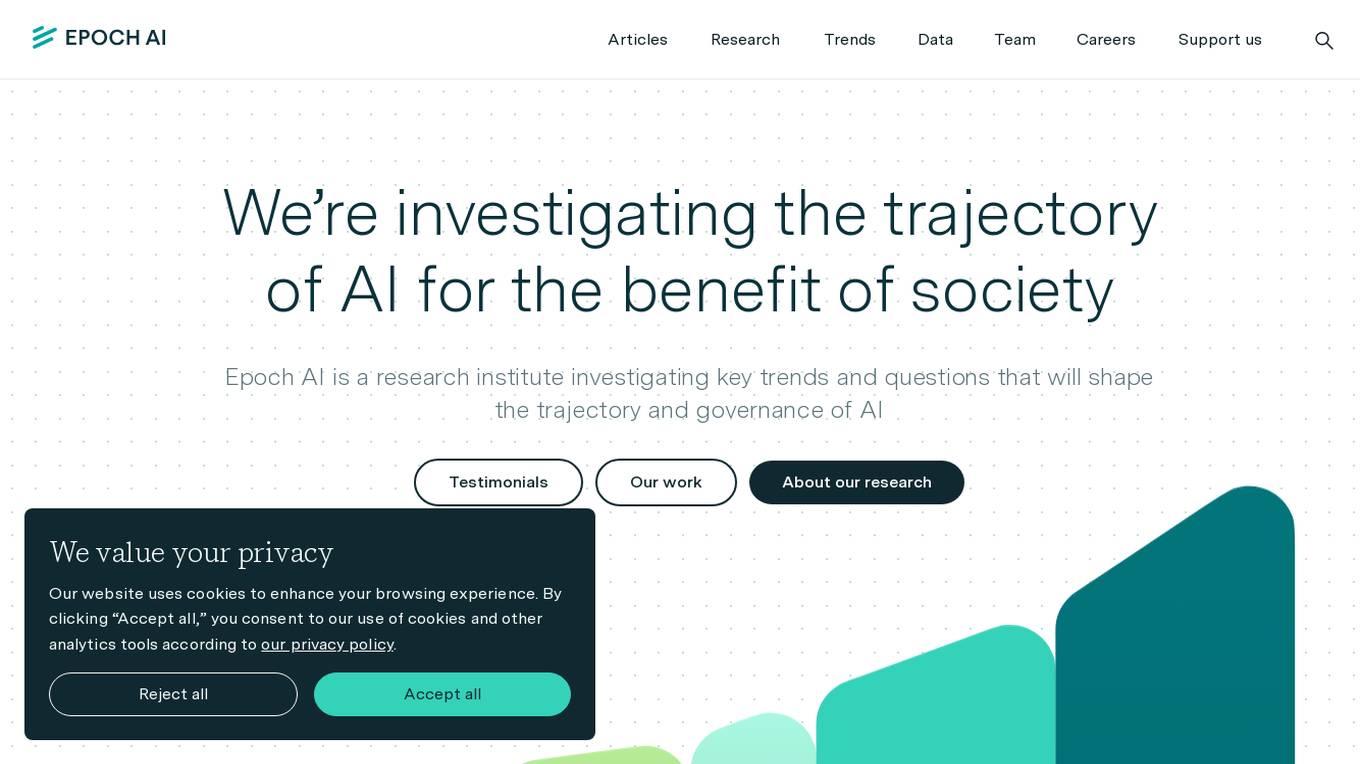
Epoch AI
Epoch AI is a research institute dedicated to investigating key trends and questions that will shape the trajectory and governance of AI. They provide essential insights for policymakers, conduct rigorous analysis of trends in AI and machine learning, and produce reports, papers, models, and visualizations to advance evidence-based discussions about AI. Epoch AI collaborates with stakeholders and collects key data on machine learning models to analyze historical and contemporary progress in AI. They are known for their thoughtful and best-researched survey work in the industry.
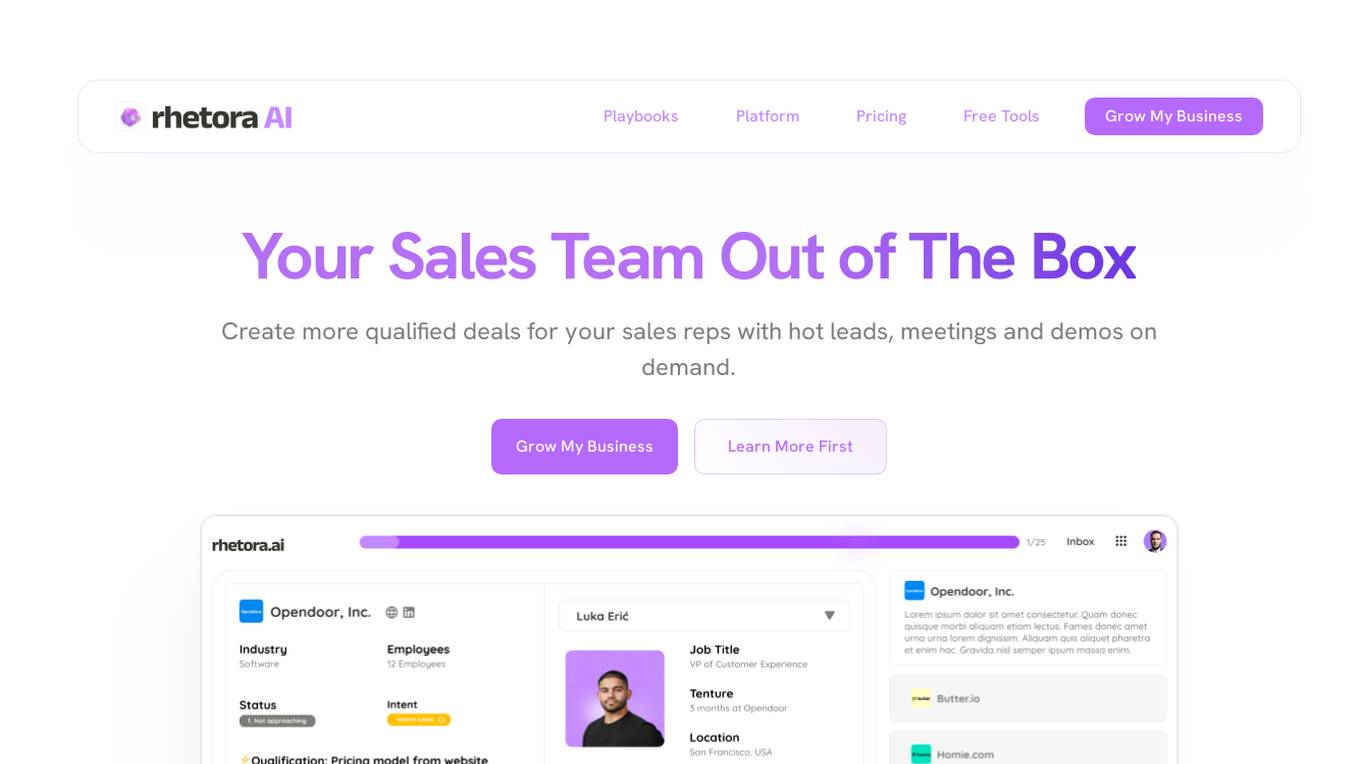
Rhetora AI
Rhetora AI is an AI-powered sales team playbook platform designed to help businesses generate consistent and qualified leads for their sales representatives. The platform leverages over 20 data providers and scrapes publicly available data sources to target ideal companies. Rhetora AI offers three different playbooks tailored for different needs, including founder-led, value-led, and signal-led playbooks. The platform also features smart engagement campaigns, AI-first CRM, and daily tasks execution managed by a combination of humans and AI.
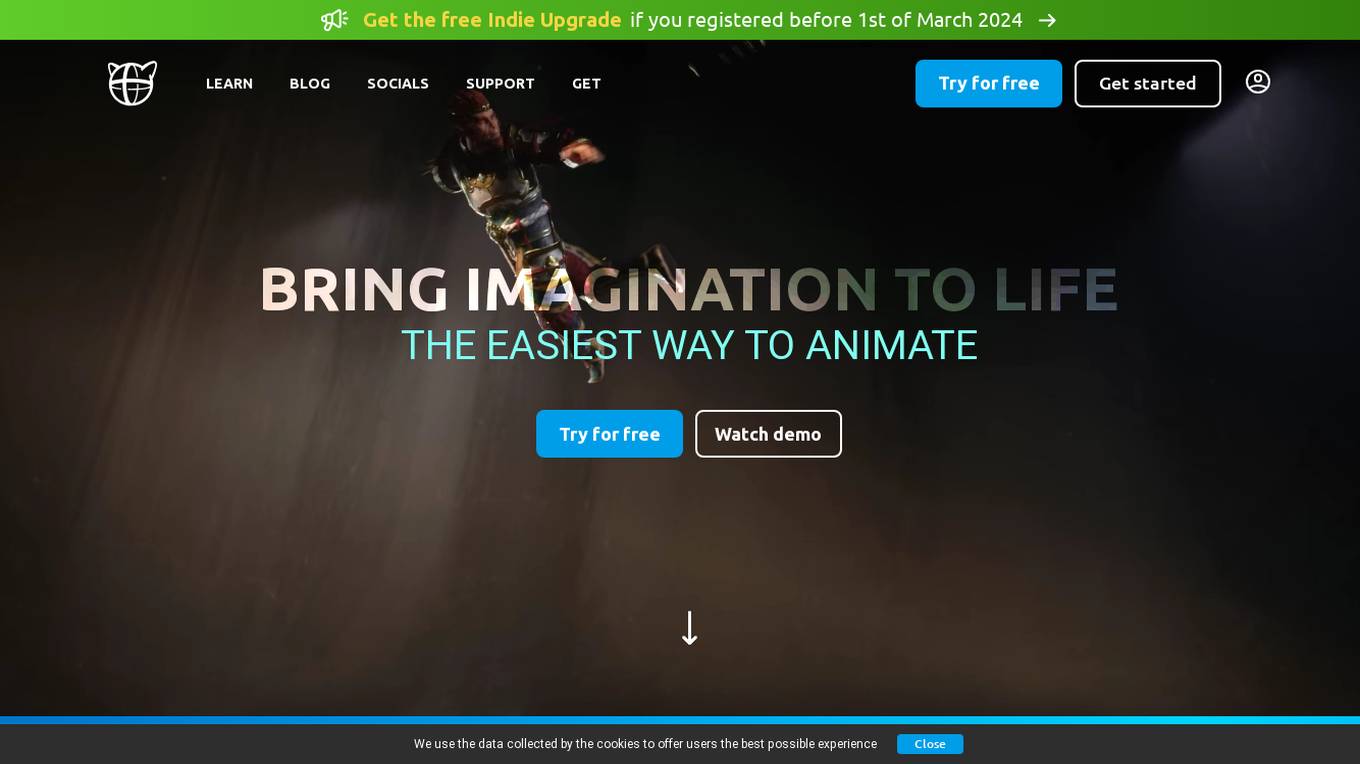
Cascadeur
Cascadeur is a standalone 3D software that lets you create keyframe animation, as well as clean up and edit any imported ones. Thanks to its AI-assisted and physics tools you can dramatically speed up the animation process and get high quality results. It works with .FBX, .DAE and .USD files making it easy to integrate into any animation workflow.
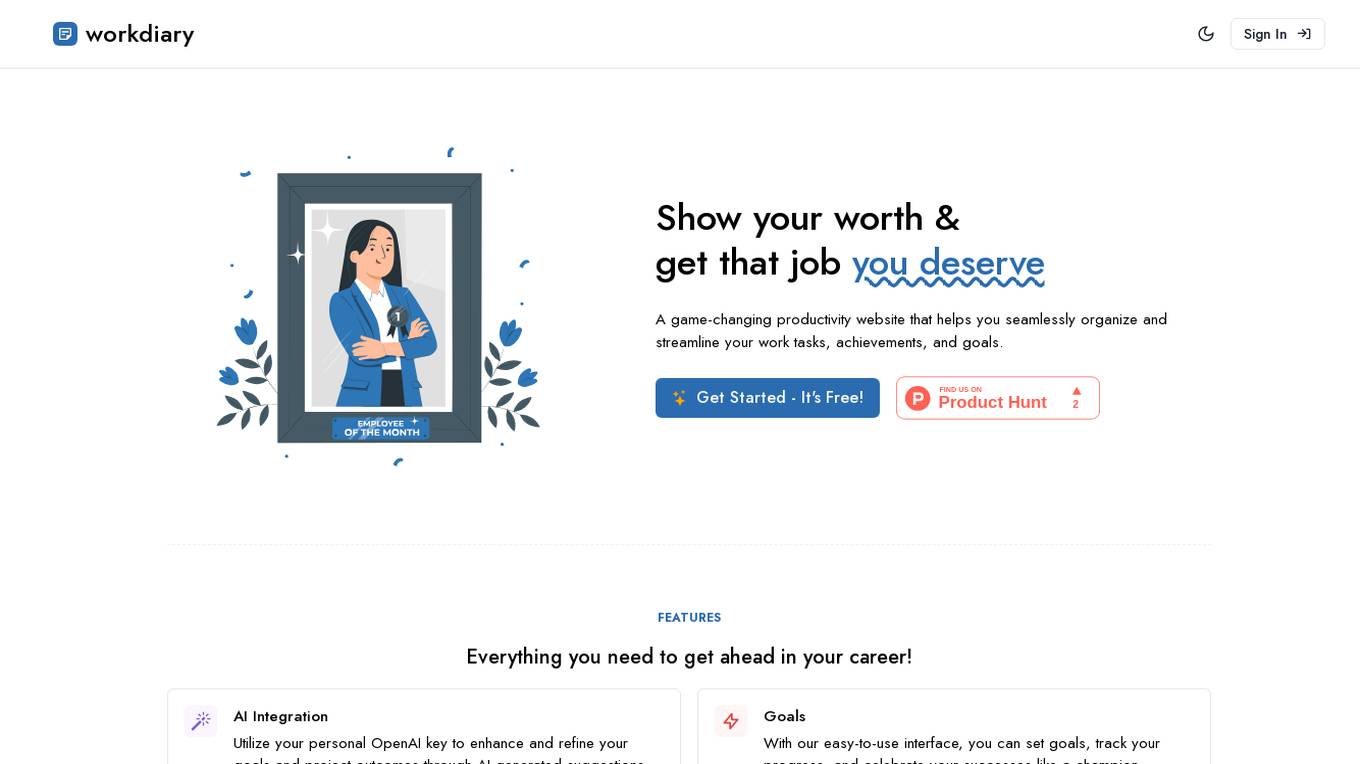
Workdiary
Workdiary is a game-changing productivity website designed to help users seamlessly organize and streamline their work tasks, achievements, and goals. It offers features such as AI Integration, goal setting and tracking, project management, milestone celebration, career guidance, and badge collection. Users can utilize their personal OpenAI key to enhance project outcomes, track progress, and receive actionable guidance to advance in their careers. Workdiary aims to empower users to take control of their professional journey and shape their future with a tool that evolves with their needs.

Linus Health
Linus Health is a next-generation digital cognitive assessment platform that enables earlier detection and intervention in brain health. It brings the power of AI to long-trusted cognitive tests, delivering rich insights and actionable clinical guidance. Linus Health's technology has been validated in over 20 published studies and is used by leading organizations to transform their approach to brain health.
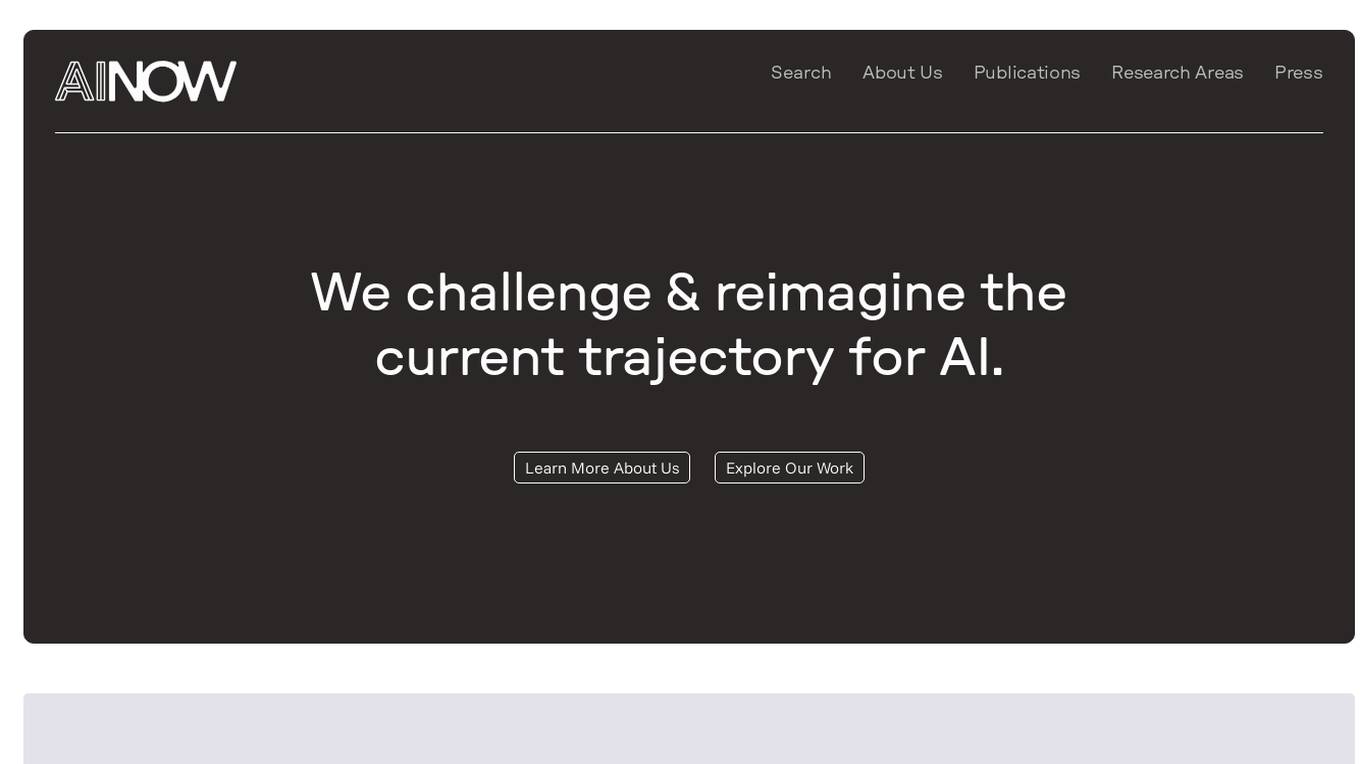
AI Now Institute
AI Now Institute is a think tank focused on the social implications of AI and the consolidation of power in the tech industry. They challenge and reimagine the current trajectory for AI through research, publications, and advocacy. The institute provides insights into the political economy driving the AI market and the risks associated with AI development and policy.
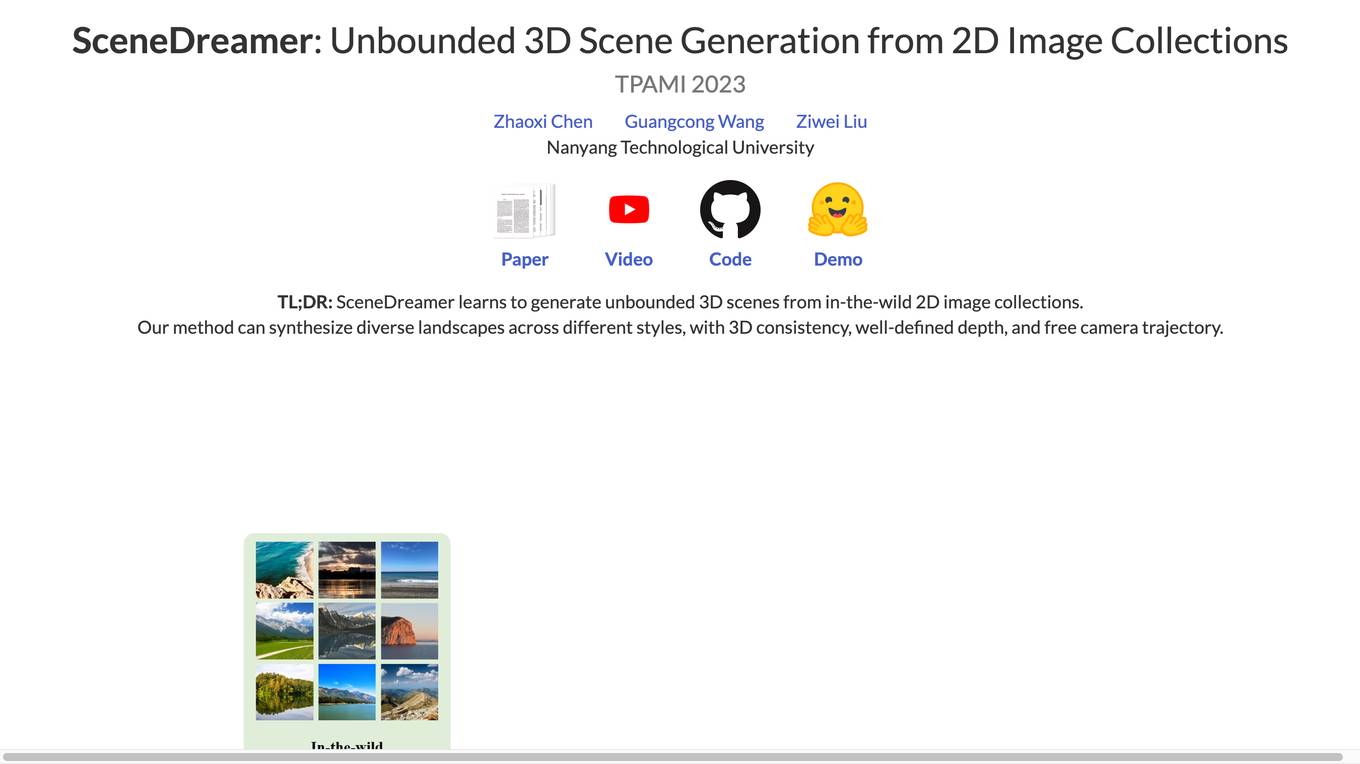
SceneDreamer
SceneDreamer is an AI tool that specializes in generating unbounded 3D scenes from 2D image collections. It utilizes an unconditional generative model to synthesize large-scale 3D landscapes with diverse styles, 3D consistency, well-defined depth, and free camera trajectory. The tool is trained solely on in-the-wild 2D image collections, without the need for 3D annotations. SceneDreamer's framework includes an efficient 3D scene representation, a generative scene parameterization, and a neural volumetric renderer to produce photorealistic images.
1 - Open Source AI Tools
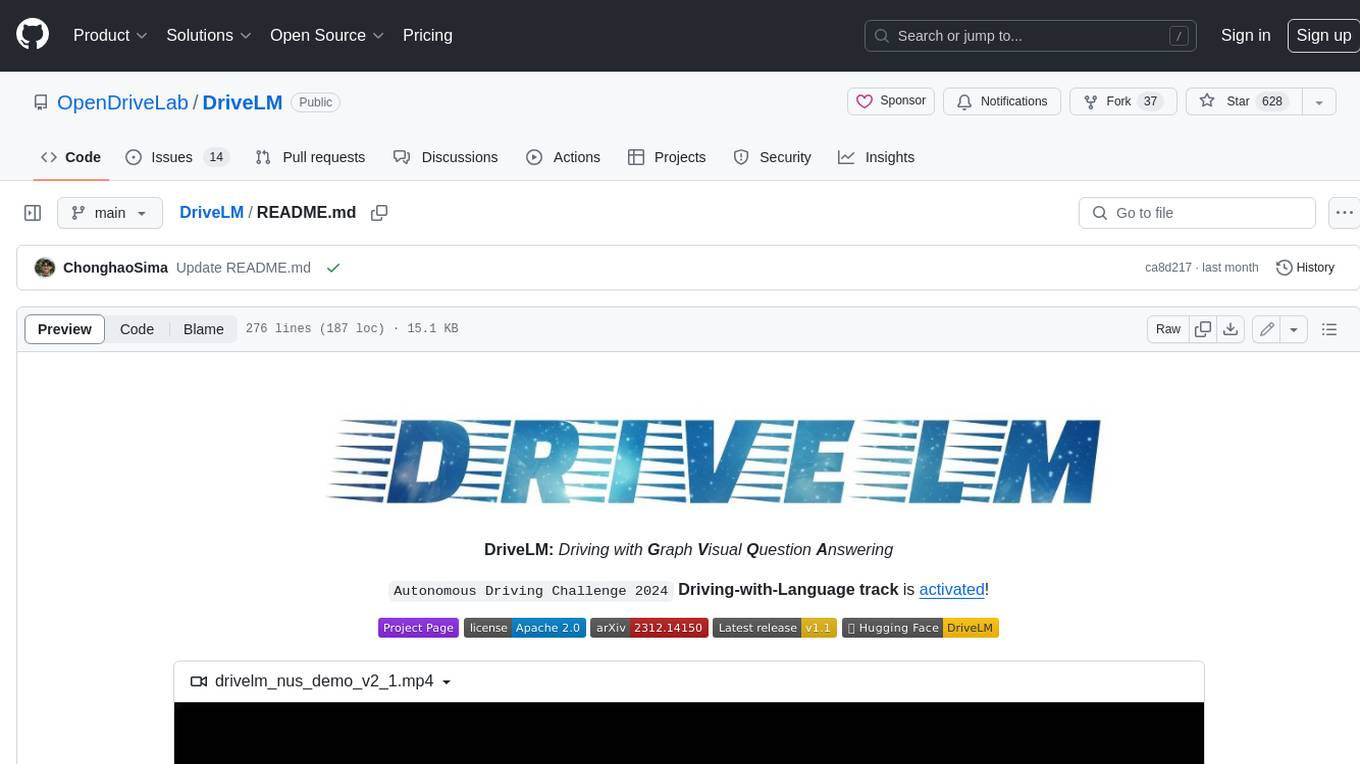
DriveLM
DriveLM is a multimodal AI model that enables autonomous driving by combining computer vision and natural language processing. It is designed to understand and respond to complex driving scenarios using visual and textual information. DriveLM can perform various tasks related to driving, such as object detection, lane keeping, and decision-making. It is trained on a massive dataset of images and text, which allows it to learn the relationships between visual cues and driving actions. DriveLM is a powerful tool that can help to improve the safety and efficiency of autonomous vehicles.
